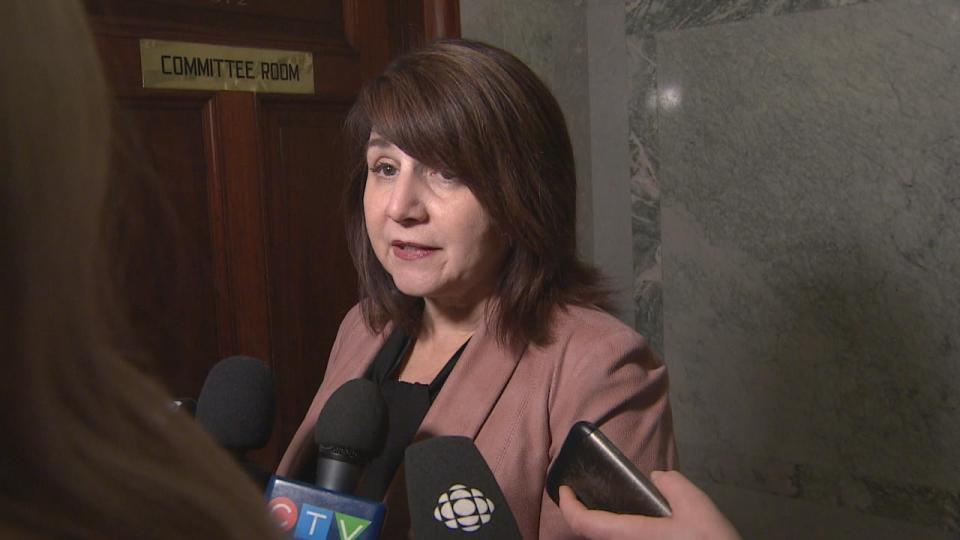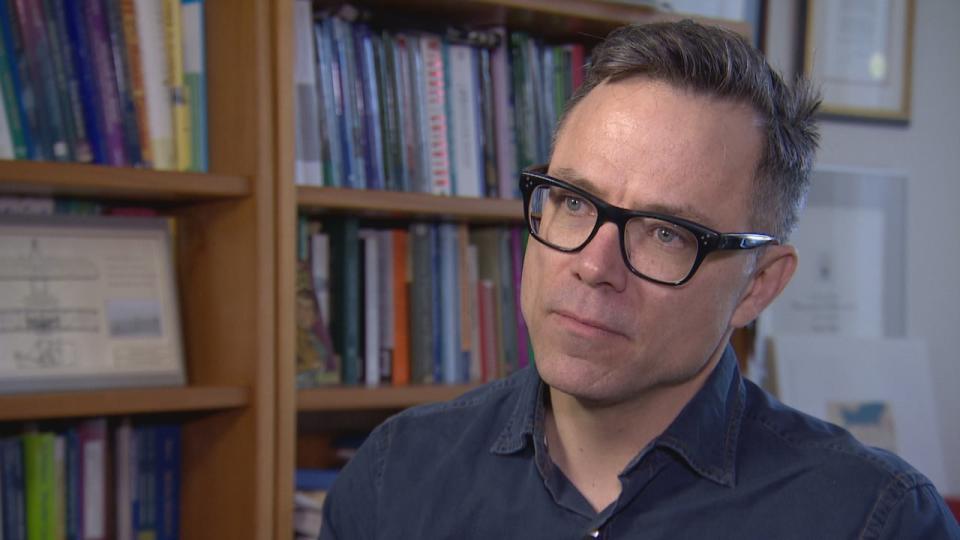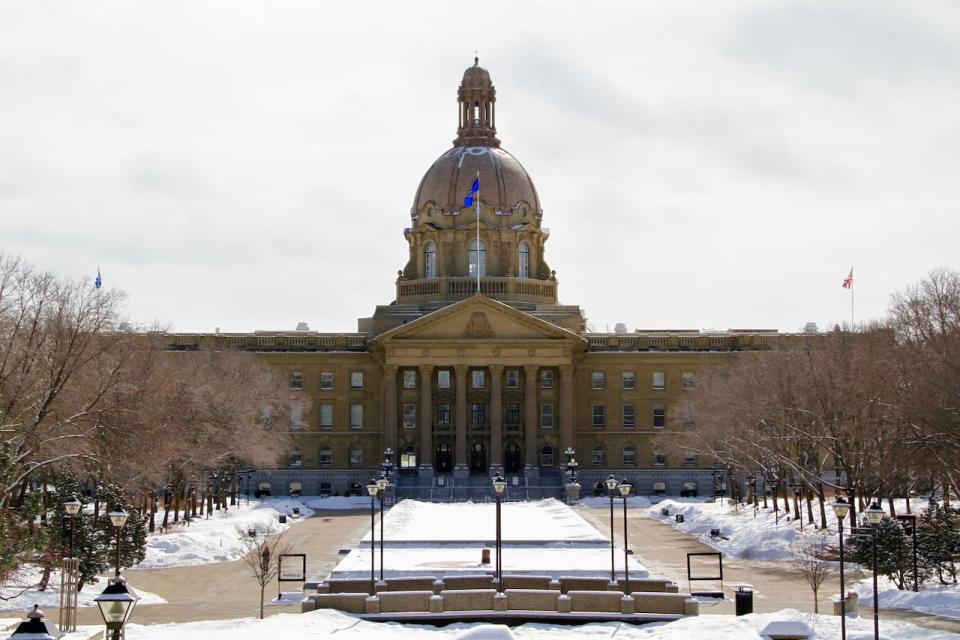Alberta naturopaths push province for bigger role in primary care, including prescribing drugs

- Oops!Something went wrong.Please try again later.
- Oops!Something went wrong.Please try again later.
Alberta's naturopaths are looking for more involvement in the province's primary care network, specifically when it comes to prescribing drugs to patients.
"There's some changes in the landscape for primary care in Alberta," Rob Roth, president of the College of Naturopathic Doctors of Alberta, told CBC News in an interview this week.
"We wanted to have a discussion with [Alberta Health Minister Adriana LaGrange] around ways that the naturopathic medical profession would be able to assist, if required, in primary care management."
With that in mind, Roth said he recently met with LaGrange to discuss how naturopaths might factor into relieving some of the pressure on the system. Primary health care refers to those services Albertans utilize to support their day-to-day health needs.
"If we look just immediately to the west, British Columbia's naturopathic doctors practise in a more fulsome primary care capacity, where I think their regulations are more proportionate to what their training is," Roth said.
"They're able to prescribe Schedule I drugs, do referrals, order imaging rights, and so forth."
In 2009, British Columbia passed legislation that allows naturopaths to prescribe Schedule I medications, including some basic primary care drugs, though there are exceptions.
The practice of naturopathy refers to a loose collection of treatments that emphasize the use of "natural" remedies. The Alberta Association of Naturopathic Doctors says the practice "blends modern scientific knowledge with traditional and natural forms of medicine."
Treatments include clinical nutrition, homeopathic medicine and traditional Chinese medicine and acupuncture, among other treatments, according to the association.
It has been regulated in Alberta since 2012, when the College of Naturopathic Doctors of Alberta was created to govern the profession.
It has drawn criticism from members of the medical community, some of whom say naturopaths employ pseudoscientific practices. Some of those clashes have madeheadlines. Those involved in naturopathy have long advocated that their methods are intended to activate a natural healing ability in the human body.
LaGrange to leverage 'all health-care professionals'
Alberta Premier Danielle Smith tasked LaGrange in her mandate letter in July to support primary care "as the foundation of our health-care system by assessing alternative models of care and leveraging all health-care professionals."
Smith, in the past, has signalled her support for funding naturopathy as a part of her idea of introducing $300 health savings accounts to cover expenses that don't currently fall under the system. Exploring the feasibility of such accounts was also a part of LaGrange's mandate letter.

Alberta Health Minister Adriana LaGrange told reporters Wednesday that she meets with a variety of stakeholders, including naturopathic doctors. (CBC)
CBC News reached out to LaGrange's office to request comment on what role, specifically, naturopaths could play in primary care moving forward, and whether funding for the alternative medicine was being considered, under health spending accounts or otherwise.
Charlotte Taillon, a spokesperson in the department, said the minister listened to Roth's requests, but no decisions were made around funding.
"Alberta's government recognizes that naturopathic doctors play a role in promoting Albertans' health and wellness," Taillon wrote, adding the minister has heard requests from "many stakeholders" over the past months since becoming minister of health.
Idea of naturopaths prescribing drugs contentious
Among naturopathy's most vocal critics is Timothy Caulfield, a Canada Research Chair in health law and policy at the University of Alberta. He said giving naturopaths the power to prescribe in Alberta wouldn't only be controversial, it would be a "terrible idea."
"I can't emphasize enough … this is not a science-based practice. Giving them the power to prescribe? Yikes," Caulfield wrote in an email.

Timothy Caulfield, a Canada Research Chair in health law and policy at the University of Alberta, said he worries about pseudoscience being normalized, something that needs to be avoided in an era of misinformation. (Sam Martin/CBC)
For Caulfield, the issue traces back to how the practice was founded around the theory of "vitalism," which suggests there is a lifeforce energy that can help people become healthier.
Alternative controversial treatments like IV vitamin therapy, homeopathy and ozone therapy that have been employed in the practice, all lack robust scientific evidence.
"They also often provide unproven testing that may heighten anxiety or may point you in the wrong direction. So there are a lot of problems with sort of legitimizing and normalizing naturopathy as a way forward in the conventional system," Caulfield said in an interview.
Future efforts and lobbying
Beyond Roth's meeting with the health minister, other groups have been pushing for naturopaths to gain a bigger role in Alberta's health system. According to records from the Alberta Lobbyist Registry dated Oct. 31, the Alberta Association of Naturopathic Doctors is registered to meet with Alberta's executive council, Alberta Health and with the Alberta Legislative Assembly.
The goal is to lobby "about the role of naturopathic doctors in the continuum of health care and regulatory/scope of practice updates for modernization of the profession."
Roth has, of course, heard the concerns that while naturopathy may involve some legitimate medical procedures, it also involves a realm of additional treatments outside the margins of science.
He argued that much of what naturopathic doctors are taught in schools is based in primary care.
"I believe that it's important and incumbent upon our profession to make sure that we're up to speed with what the literature says, in terms of things like … what is efficacious? What is not efficacious?" he said.
"And make sure that we are delivering therapies that are efficacious and do have good scientific literature around it, and then … are also want the patient wants."

The Alberta Association of Naturopathic Doctors registered as a lobbyist on Oct. 31 to meet with Alberta's executive council, Alberta Health and with the Alberta Legislative Assembly. (David Bajer/CBC)
Caulfield is unconvinced about such a perspective, suggesting it represents a "false dichotomy." There are elements to naturopathic practices that are supported by science, including an emphasis on the benefits of exercise, sleep and nutrition, but he said those are things family physicians are meant to do.
"Maybe they should do more of that, but good family doctors do that. There's the whole public health system that emphasizes that those are science-based strategies," Caulfield said.
"We can't fix the problems that exist in our conventional system with pseudoscience."
Asked for additional comment in the Alberta Legislature on Wednesday, LaGrange said she and Roth discussed the role naturopathic doctors have in Alberta.
"He was just highlighting all of the great work that they're doing, and that was the extent of the conversation," LaGrange said.
A spokesperson with the Alberta Medical Association declined to comment.

